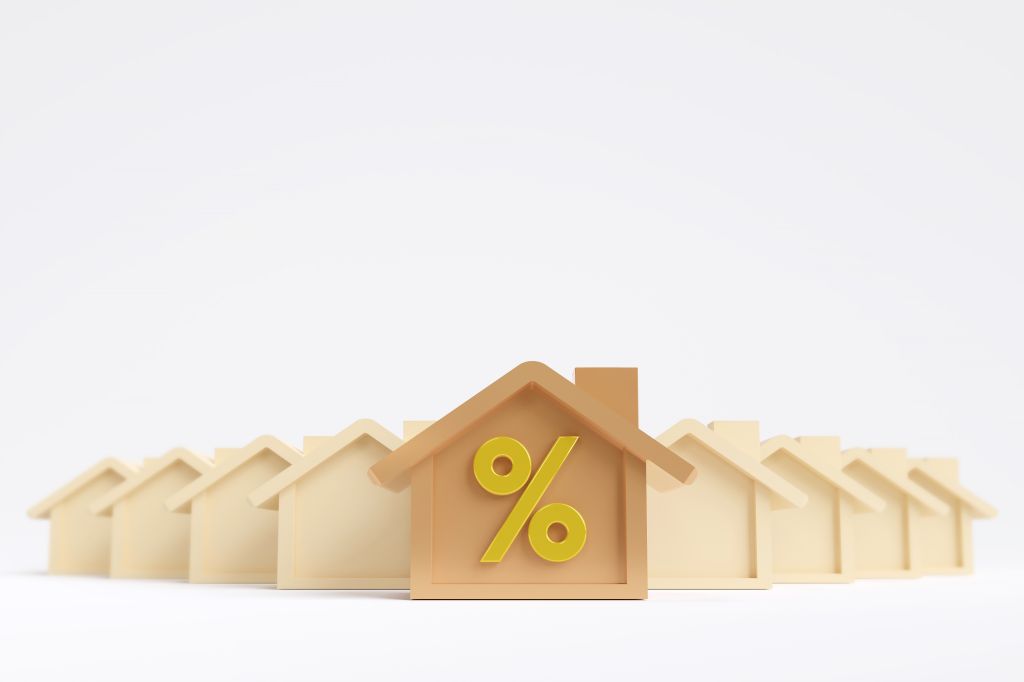TLDR
-
The Bank of Canada is holding its policy rate steady at 2.75%.
-
You could take advantage of market stability with a new build home.
-
Get more time to save for a down payment and spread it out in staggered deposits.
-
Consider buying at today’s prices and start building equity early.
With the Bank of Canada announcing that it’s holding its policy interest rate at 2.75%, new and aspiring homebuyers are likely to wonder if this is a good time to buy. With economic uncertainty in the air, will interest rates go up in the future? Is it better to wait in case they go down? While no one can predict where interest rates are headed, experts can agree on one thing: homeownership decisions should be based on your individual goals and circumstances – not speculation.
But if you’re looking for an edge in today’s market, one idea to explore is buying a new construction home. Even if the home isn’t ready for a year or so, you can take advantage of today’s rates and home prices. And, for buyers finding it a challenge to come up with a lump sum down payment, the payment structure of new construction homes offers an alternate path – one that can make it easier to enter the housing market.
Laying the foundation: Spreading out your down payment over time
For first-time homebuyers in Canada, one of the biggest obstacles to ownership is saving for a down payment. While there are some programs and accounts that make it easier to save for a first home – in fact, you may already have a bit saved up in a Home Buyer’s Plan (HBP) or a First Home Savings Account (FHSA) – it can still be a challenge to save up the full amount you need. And you may be itching to make a move now! This is where buying a new build home can provide an edge.
That’s because when buying a new home from a builder, you provide the down payment in installments, over the course of months or years.
The deposit schedule is outlined in the purchase agreement – and it’s usually available on the builder’s website – so as a buyer, you know in advance what your financial commitments look like. Here’s a common schedule:
-
Initial Deposit: 5% of the purchase price at the time of signing the agreement
-
Second Deposit: 5% within 90 days
-
Third Deposit: 5% within 180 days
-
Final Deposit: 5% within 365 days or at the time of occupancy
| Features | New build home | Resale home |
|---|---|---|
| Move in date | Based on construction (some inventory may be available) | Immediate or flexible closing |
| Deposit due | Staggered deposits | Full deposit at time of closing |
| Customized finishes | Choose your layout and finishes | Buy as is |
| Maintenance | New fittings and features | May need repairs or upgrades |
| Home warranty | 7-10 years builder warranty | No warranty (unless offered) |
| Price negotiation | Less room to negotiate | More room to negotiate |
| Energy efficiency | Meets modern standards | Varies per home |
While the goal – homeownership – is the same, the process of buying a new construction home differs from purchasing a resale property.
Resale: When you buy resale, you tour the existing home, walk through each room and imagine how your furniture will fit. You can meet the neighbours, explore the local area, and move in relatively quickly.
New Build: Buying a new build often involves choosing a floor plan from a model home or builder’s catalogue. And depending on the stage of the development, you may get a choice of layouts, sizes and even lots.
What’s more, you often get to personalize finishes and colour schemes – even if you buy mid-way through a project. No need to strip wallpaper or renovate outdated kitchens! You’re also starting fresh, with the latest brand-new energy efficiency technology and no need for immediate repairs, just use your imagination (or an AI tool) to help visualize your finished space.
The paperwork involved in buying new is also a bit different. While it’s always a good idea to get a pre-approval so you know how much you can afford (whether you’re buying new or resale), the steps that follow do change.
For instance, once you have landed on a model and lot, with a new construction home you’ll sign a builder’s purchase agreement – this is different from a resale offer. This agreement will outline the purchase price, deposit schedule, closing date, as well as the terms for choosing upgrades. You’ll then work with the builder to iron out the details before signing.
Additional factors to consider for a pre-construction
While buying new comes with perks, there are some things to keep in mind:
-
The purchase agreement: Anytime you enter an agreement, it’s important that your interests are protected. This is especially true when you’re making perhaps the biggest purchase of your life. Builder agreements are generally more complex and have additional clauses compared to an agreement for an existing property, so it’s a smart idea to get the agreement reviewed by a lawyer who is familiar with new builds. Your lawyer can interpret the agreement for you, negotiate with the builder and make sure that as a buyer, you’re protected against things like changes in the project timeline, legislation, or material costs.
-
Cancellation clauses: If your situation changes and you need to cancel the purchase, you may lose out on your deposit(s). In some cases, you could opt out of the purchase and assign it to someone else, but you may still be out some cash.
-
Building delays: Construction delays can happen. Be prepared for potential changes to your timeline and be sure to budget and plan accordingly.
-
Upgrade costs: If you’re getting upgrades, it may increase the purchase price of the home – it’s a good idea to work with an RBC Mortgage Specialist to discuss your options when it comes to funding upgrades.
Advantages for first-time homebuyers in Canada
For many home buyers, there is meaningful upside to buying a new build – especially for first-time homebuyers, newcomers to Canada or even current homeowners looking to upgrade. Here are some of the highlights:
-
Time to secure your down payment: You don’t need to provide the full 20% down payment up front. So, you get you more cash flow flexibility and time to save.
-
Firm mortgage credit approval: Some financial partners, such as RBC, provide a firm mortgage credit approval that lasts from start (when you sign your purchase agreement) to finish (when the home is built and the sale closes). In other words, when you get approved, you stay approved.
-
Lock in your interest rate: In some cases, you can also lock in the interest rate for the duration of the build, mitigating the risk of interest rates going up between purchase and move-in. RBC, for instance, also lets you take advantage of falling rates.
-
Start to build equity: You get to take advantage of today’s home prices – so if the value of the property goes up between the time you purchased and the time you move in, you may have the potential to build home equity.
-
GST relief: The federal government has announced a GST rebate for first-time home buyers who are purchasing a new build. When introduced the rebate will remove the GST on new homes at or under $1 million and lower it on homes between $1 million and $1.5 million for all first-time buyers.
Buying a new pre-construction home can be a smart and flexible way to step into the housing market – especially in today’s interest rate environment. And with an
RBC Builder Mortgage you’ll have the ability to spread out your deposit, lock in your mortgage rate, and secure your home at today’s prices, all while having the peace of mind that comes with a firm mortgage approval.
Remember, while the building process can be long, it’s never too early to secure your firm approval and lock in your rate – your future self will thank you for it! After all, there’s no commitment to a mortgage until closing day… and you could benefit if rates go down before you finalize your purchase.
Thinking of buying a pre-construction home?
Talk to an RBC Mortgage Specialist to learn more about our flexible mortgage options designed for your life.
When is the next Bank of Canada interest rate announcement?
Staying up to date on the interest rate environment can help you make informed mortgage decisions – and prepare for any adjustments needed to stay on track with your homeownership and financial goals.
The next Bank of Canada interest rate announcement is July 30, 2025.






